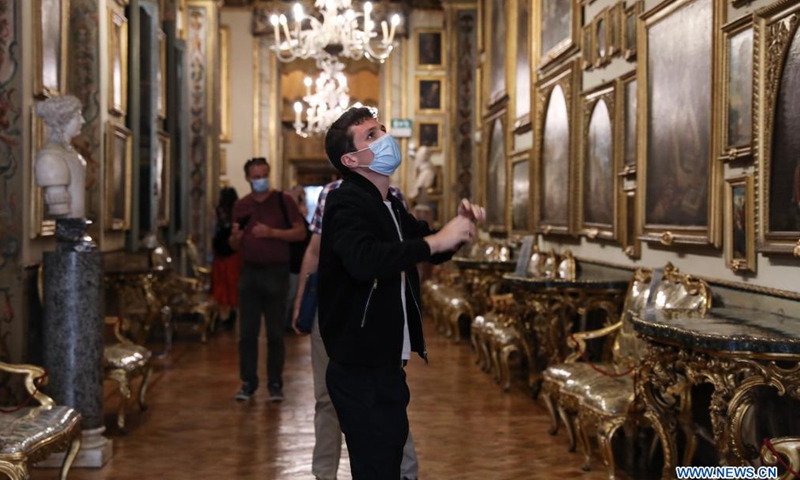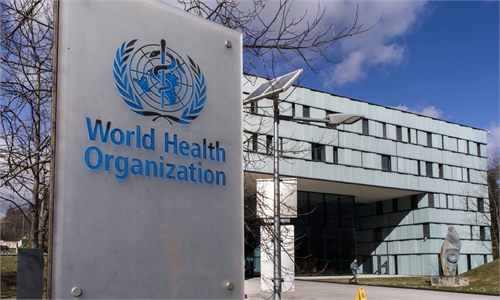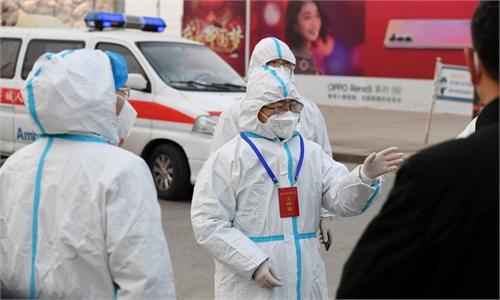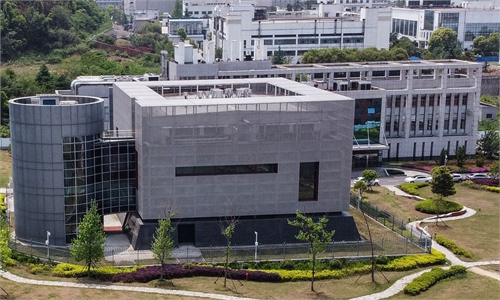WHO works with Italy to retest samples of COVID-19 study, indicating 'intl experts start tracking down virus origins outside China'

Visitors view exhibits at the Doria Pamphilj Gallery in Rome, Italy, May 21, 2021. As Italy began easing coronavirus health restrictions, many sites including the Doria Pamphilj Gallery have reopened to visitors, with a series of precautions being taken, such as limiting number of visitors and requiring visitors to reserve precise entry times.Photo:Xinhua
The World Health Organization (WHO) and some of its scientists confirmed to the Global Times on Wednesday that the agency is working with researchers in Italy and a reference laboratory to retest the samples of a study that suggested the coronavirus may have been circulating in Italy since autumn 2019, earlier than in Wuhan, Central China's Hubei Province.
Chinese observers said this indicates that international experts have started tracking down the origins of COVID-19 in regions outside China, and the tracing work may move to cover more countries that reported early evidence, including the US.
However, observers stressed that this does not mean that the virus originated in Italy or other countries, as tracing the source is a complicated and difficult job requiring a large amount of global investigations and studies. According to WHO scientists, the agency's international experts group is looking forward to starting the second phase of studies on the coronavirus' origins.
A WHO spokesperson told the Global Times on Wednesday that the agency is in contact with the researchers who published the original paper, and collaboration with partner laboratories has been set up for further testing of available samples from Italy during that period.
A study released in November 2020 by the National Cancer Institute (INT) in Milan showed that COVID-19 antibodies were detected in the blood samples of 111 of 959 individuals enrolled in a lung cancer screening trial between September 2019 and March 2020. Most of the volunteers were from Lombardy, which was the first and hardest-hit region of Italy by COVID-19.
Italy was the first Western country to be severely hit by the epidemic, with the first known case reported in the Lombardy region on February 21, 2020.
The study, titled Unexpected Detection of SARS-CoV-2 Antibodies in the Pre-Pandemic Period in Italy, said it showed "an unexpected very early circulation" of COVID-19 among asymptomatic individuals in Italy several months before the first patient was identified.
The WHO spokesperson said that the organization is aware that researchers are planning to publish the manuscript in the near future.
Dutch virologist Marion Koopmans, a member of the WHO-China joint team on the origins study earlier this year in Wuhan, told the Global Times on Wednesday that the WHO has asked the scientists who published the early positive serology to see if that finding could be confirmed by a reference laboratory.
"That work is ongoing, and it is part of the usual process that the WHO does in these types of situations, when the findings are surprising," she said.
Koopmans said that the WHO "continues to explore what we need to learn about these viruses, and it has also commissioned studies to address specific questions elsewhere."
Koopmans told the Global Times last week that follow-up studies on the coronavirus' origins should look at regions outside China that reported "viral sequences very early, in 2019, like northern Italy."
But the WHO's ongoing work with Italian researchers may not be considered as the official start of the second phase of coronavirus origins tracing, although many countries have called for it, another WHO scientist who requested anonymity told the Global Times.
According to him, the retest of the Italian samples is important and it was contained in the recommendations made during the recent World Health Assembly.
"The results will let us know how to proceed down one of the remaining viable pathways," he said, noting the WHO international experts' group is optimistic and eager to continue this work and start planning the second-phase studies on the coronavirus' origins.
A Beijing-based immunologist who requested anonymity told the Global Times on Wednesday that there is a need to retest those samples and also conduct more tests on nucleic acid as well as viral sequencing, to ensure that those volunteers were actually infected with COVID-19 rather than some other coronavirus.
The samples being retested are just part of the evidence regarding environmental and human specimens found in Italy.
According to a new study published by the US Centers for Disease Control and Prevention's Emerging Infectious Diseases journal in December 2020, Italy identified the novel coronavirus in a 4-year-old boy on December 5, 2019 after he developed a cough on November 21, 2019.
Another study found that the virus was also detected in samples collected in untreated wastewater in the Milan area as early as mid-December 2019.
The immunologist said that if evidence of COVID-19 being present in Italy was confirmed, and samples were found before December 2019, it would show that Wuhan may not have been the place where the virus originated, and international scientists would then need to look at broader possibilities.
Countries including the US, Spain and Brazil, which reported the early evidence of COVID-19 before December 2019 should also cooperate with the WHO on coronavirus origins study, the immunologist said.
The Chinese Foreign Ministry has called on the US to cooperate with the WHO based on transparency and openness, and to invite international scientists to visit the Fort Detrick lab for investigation.





